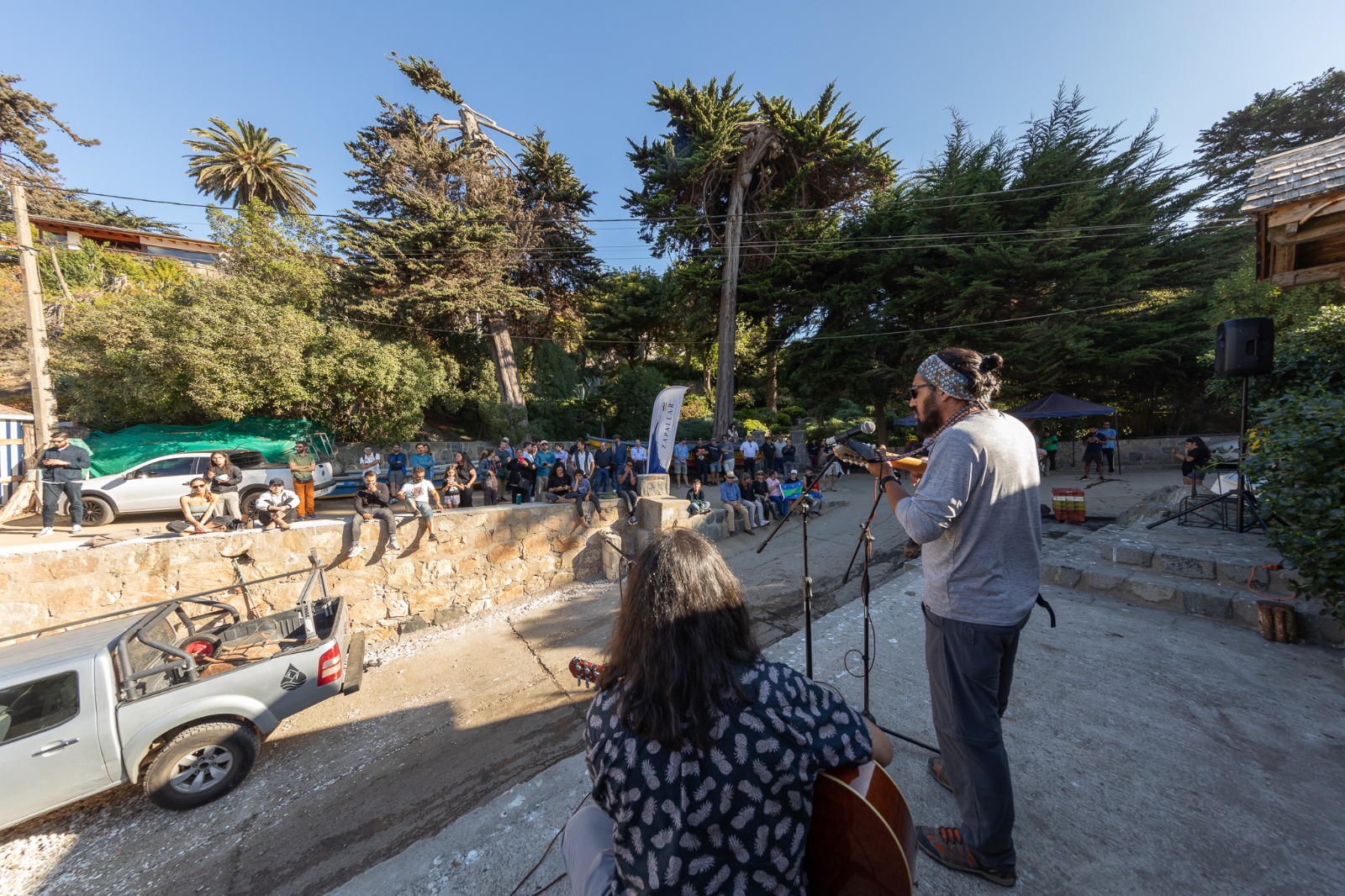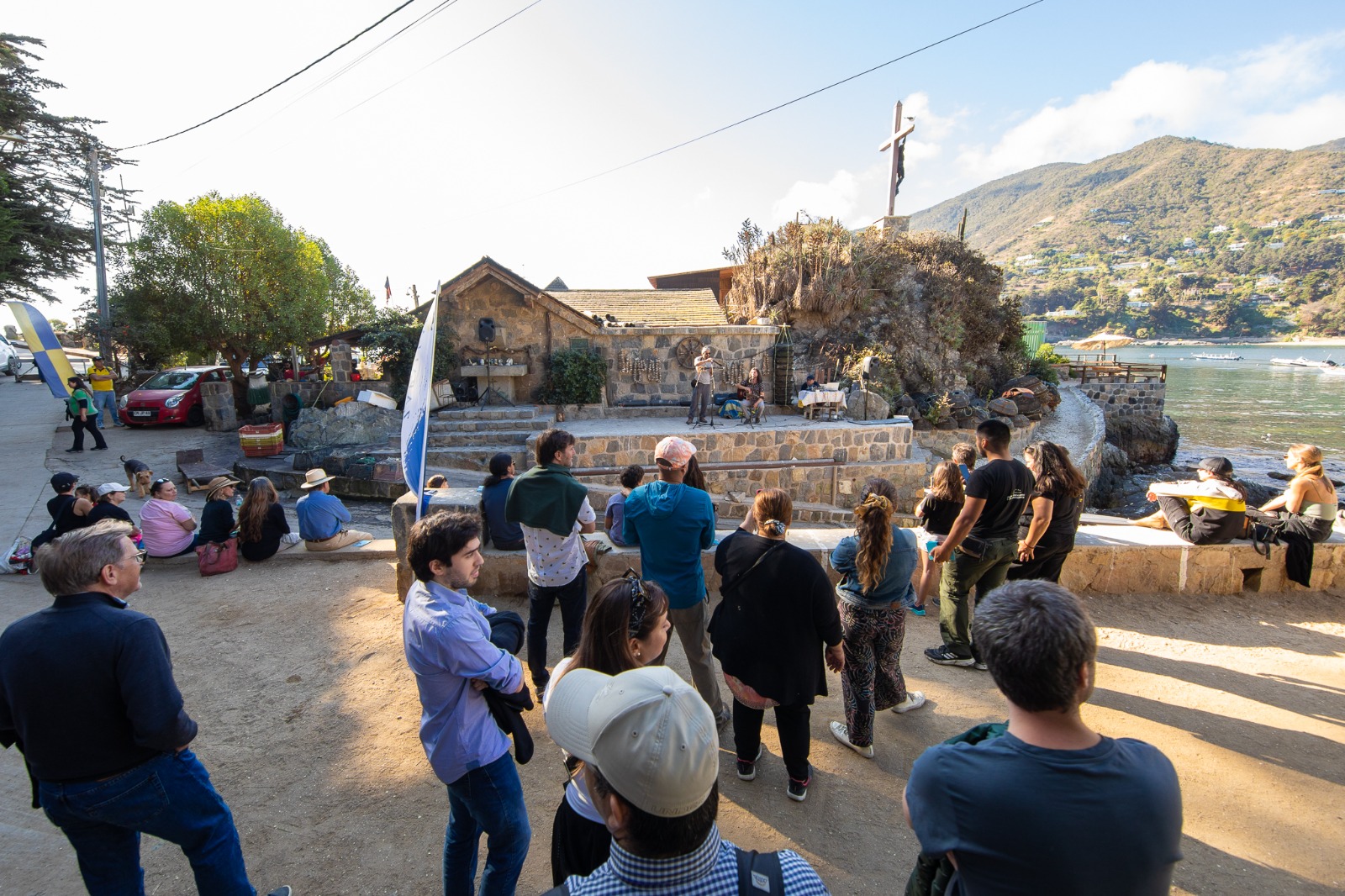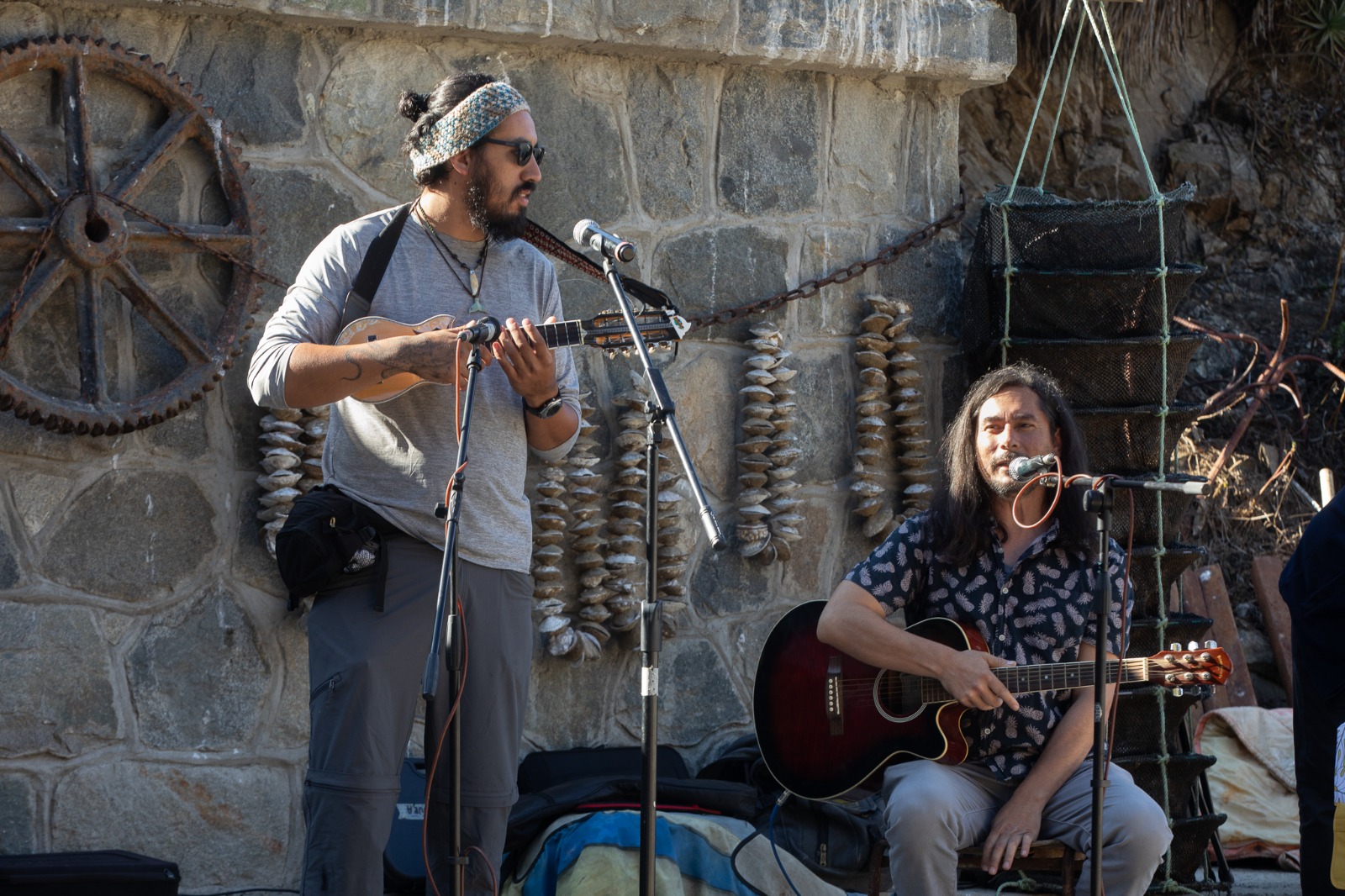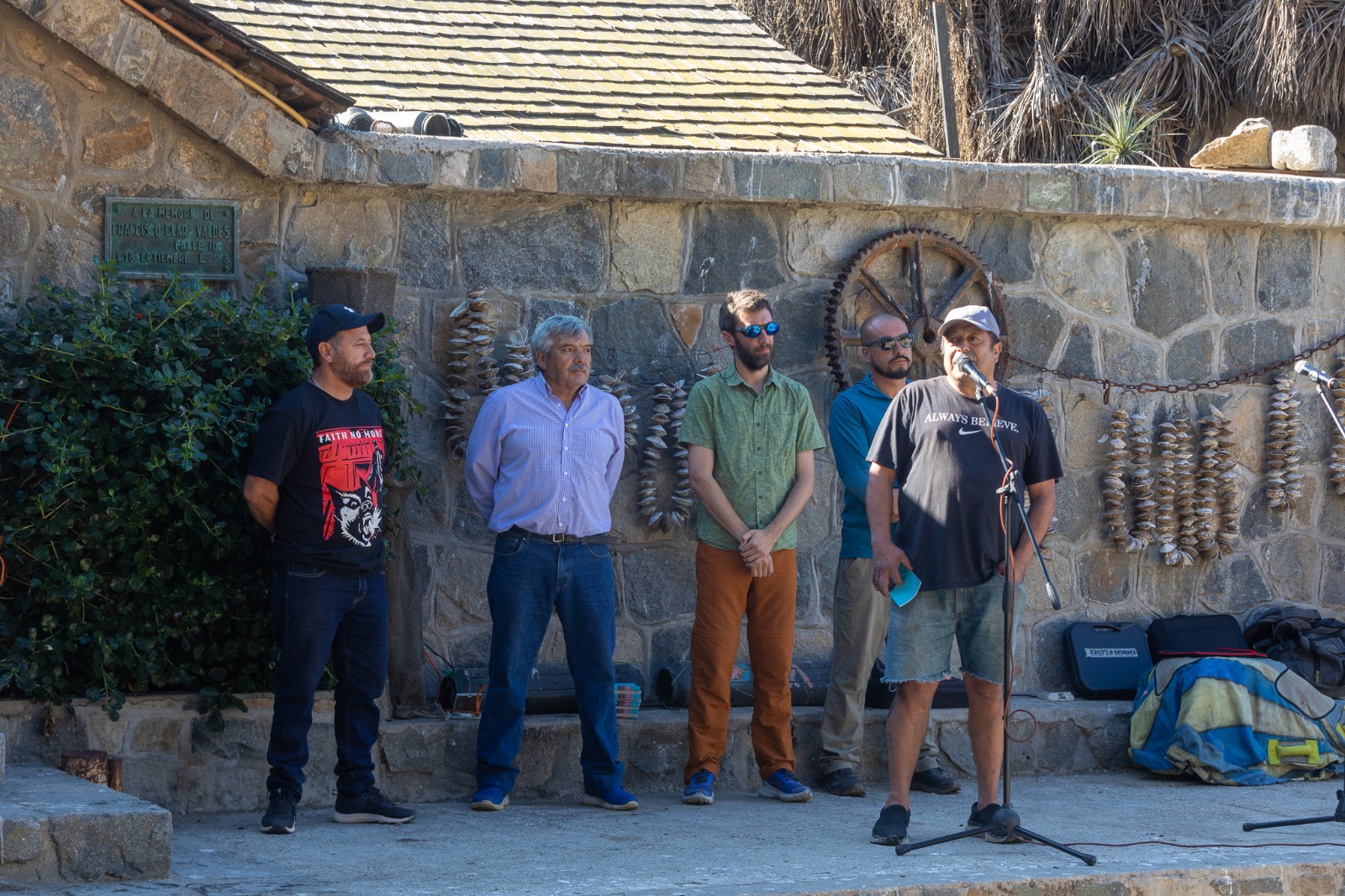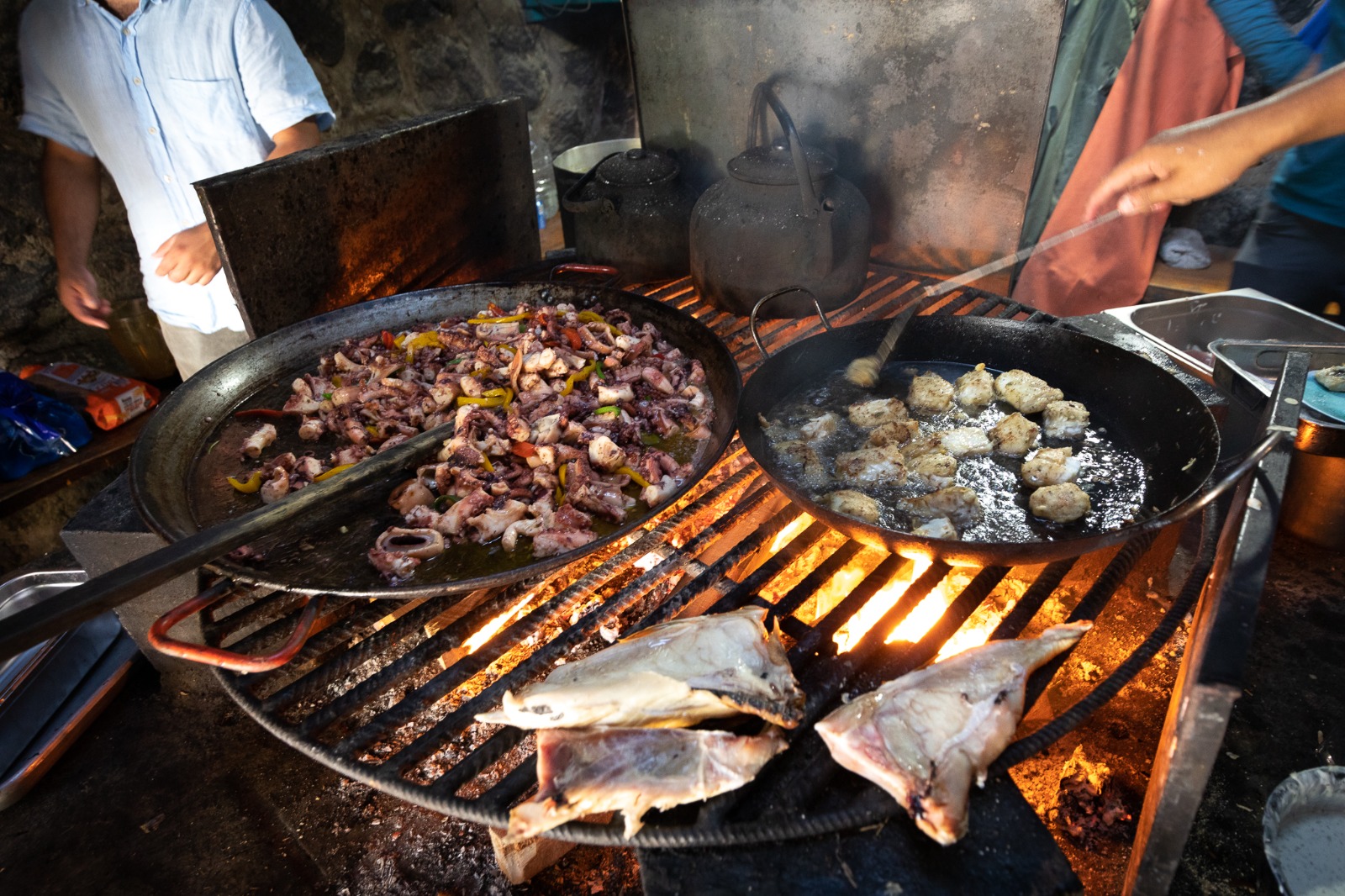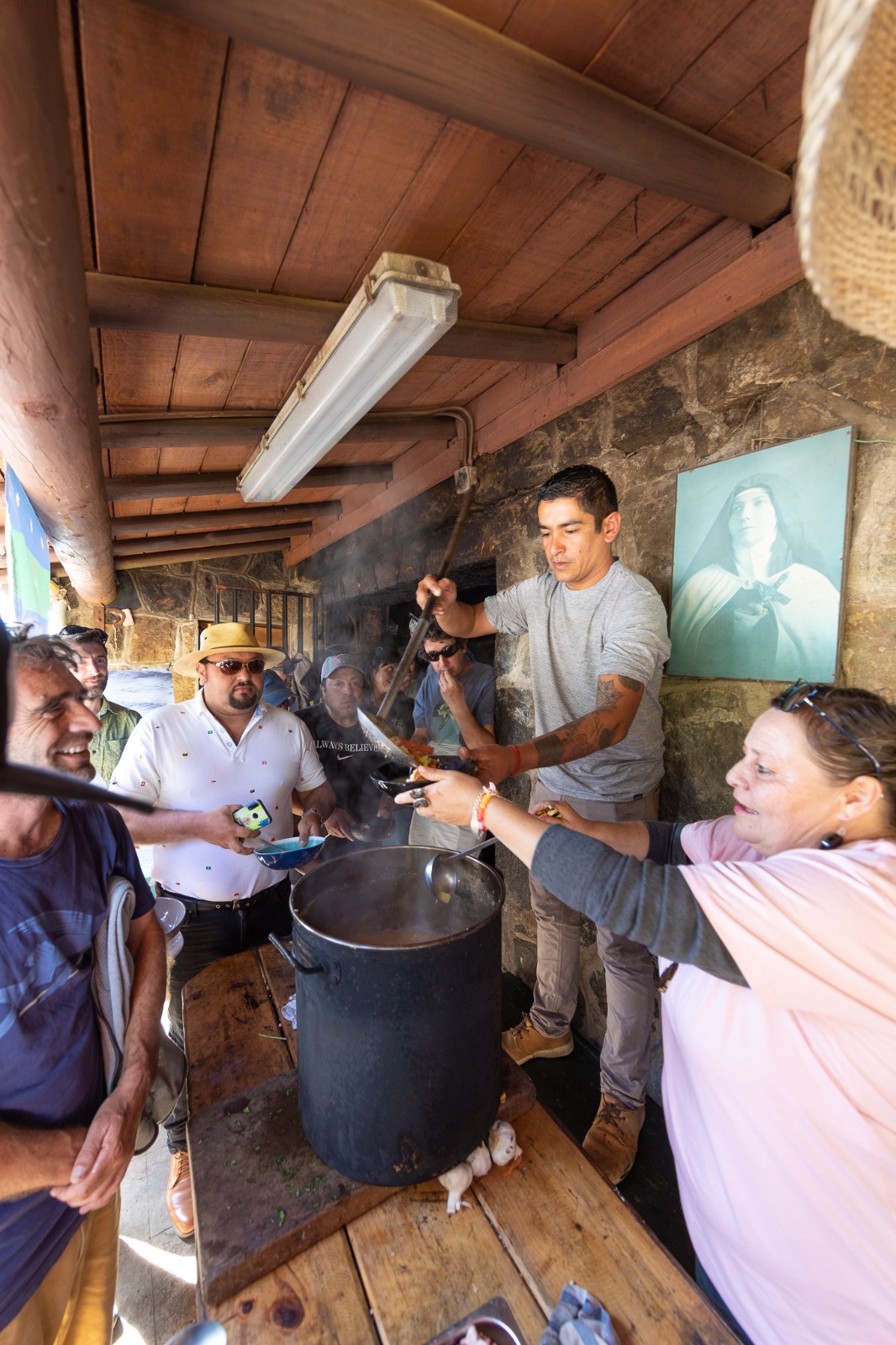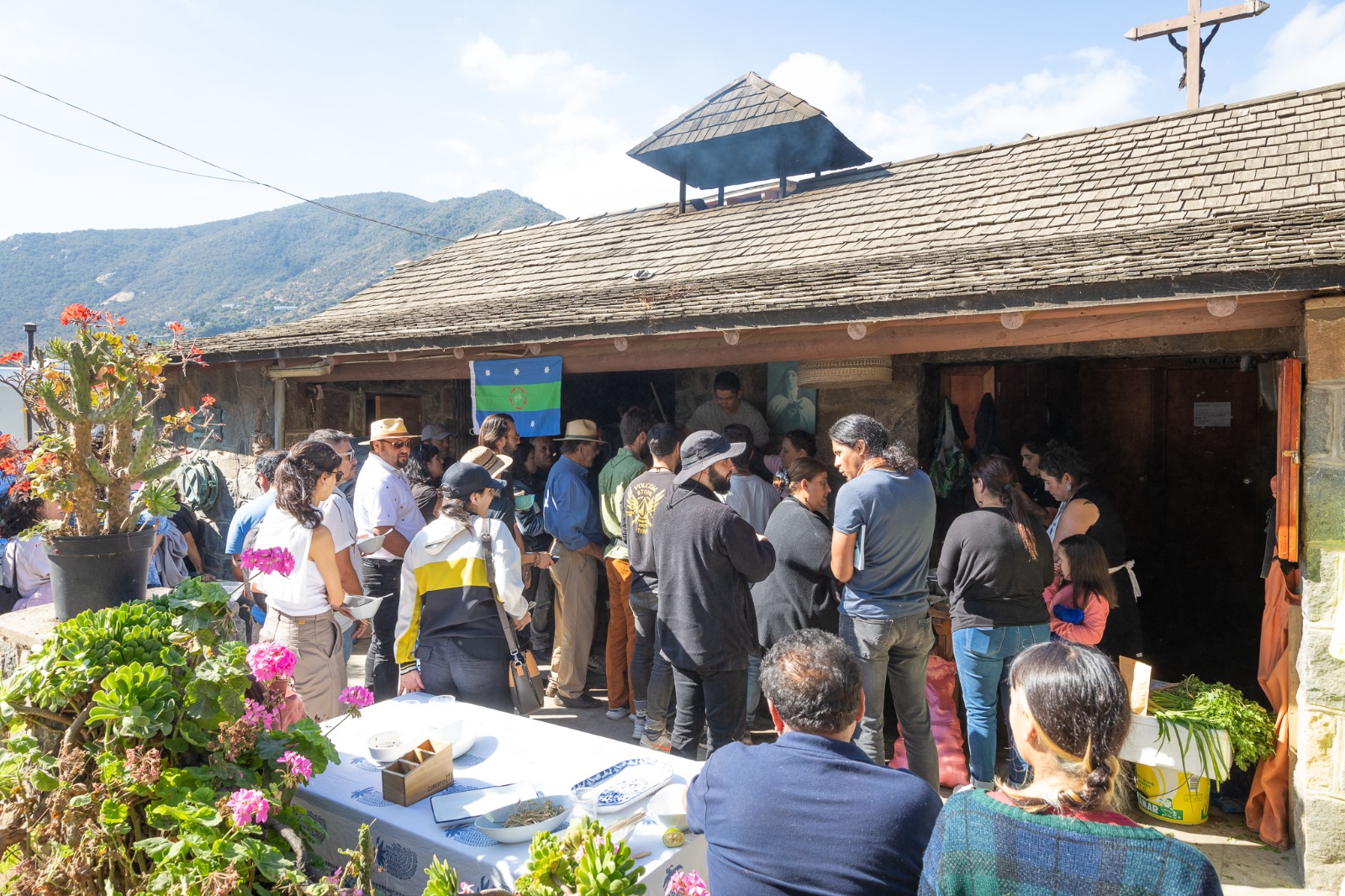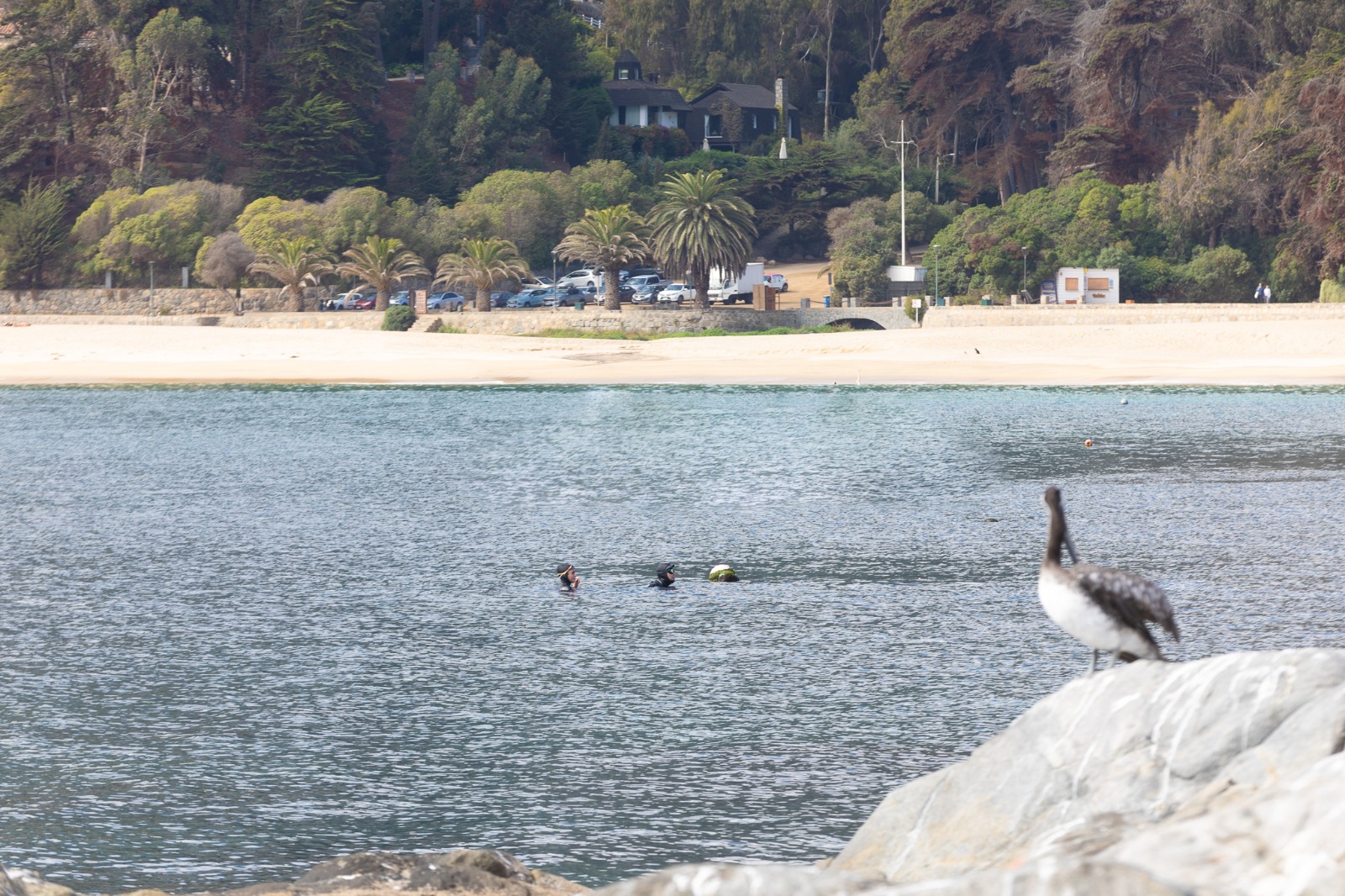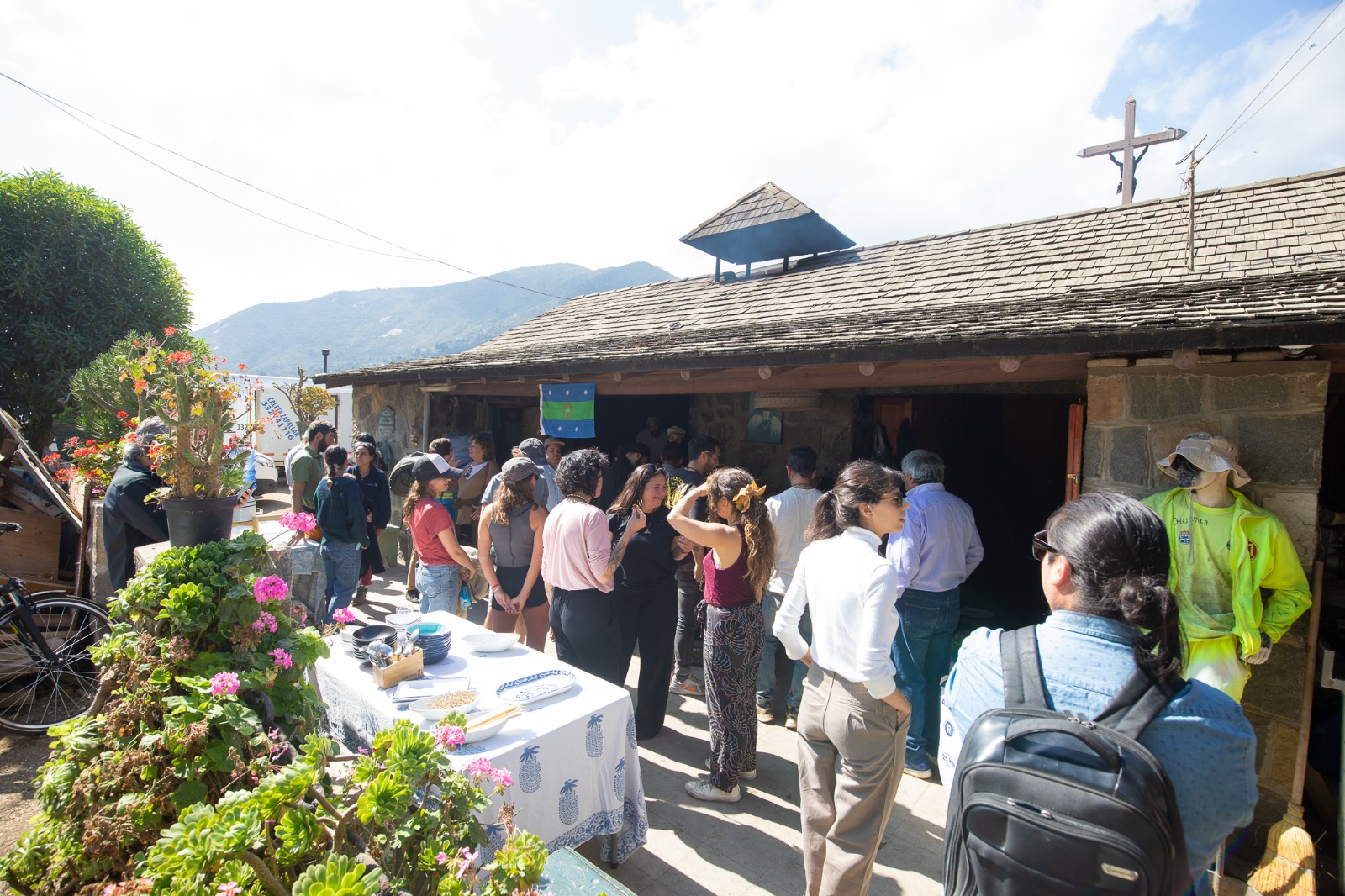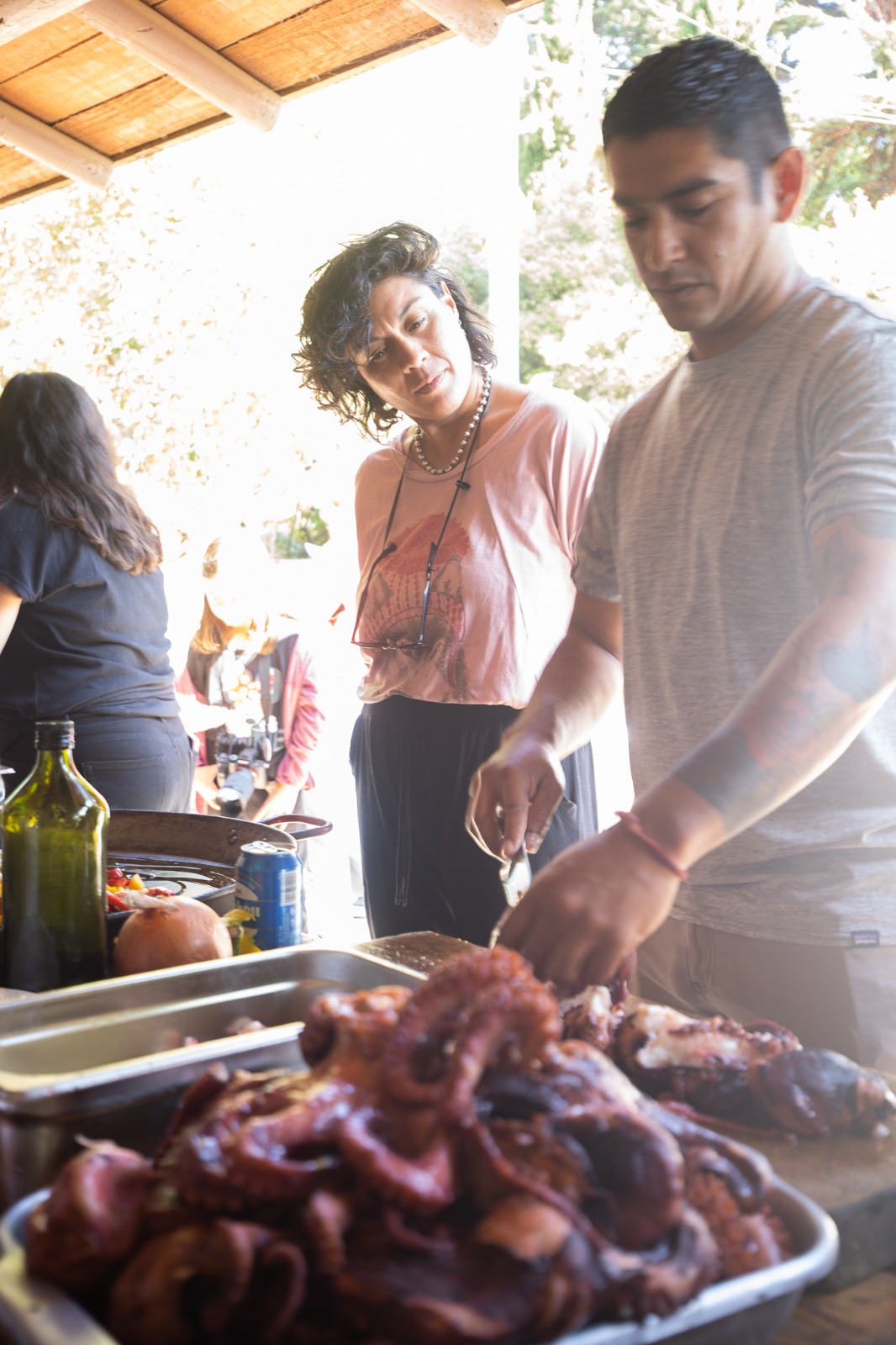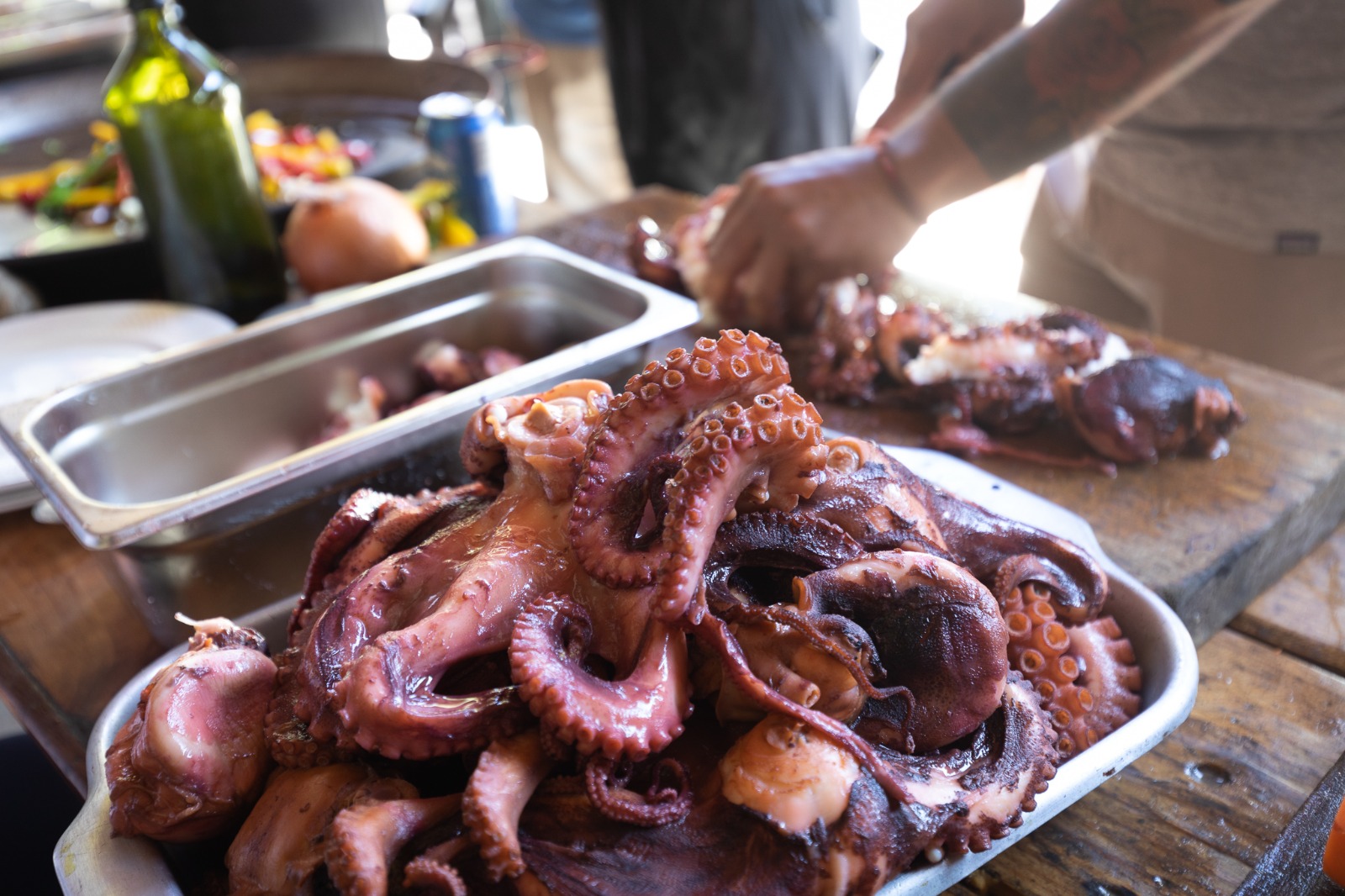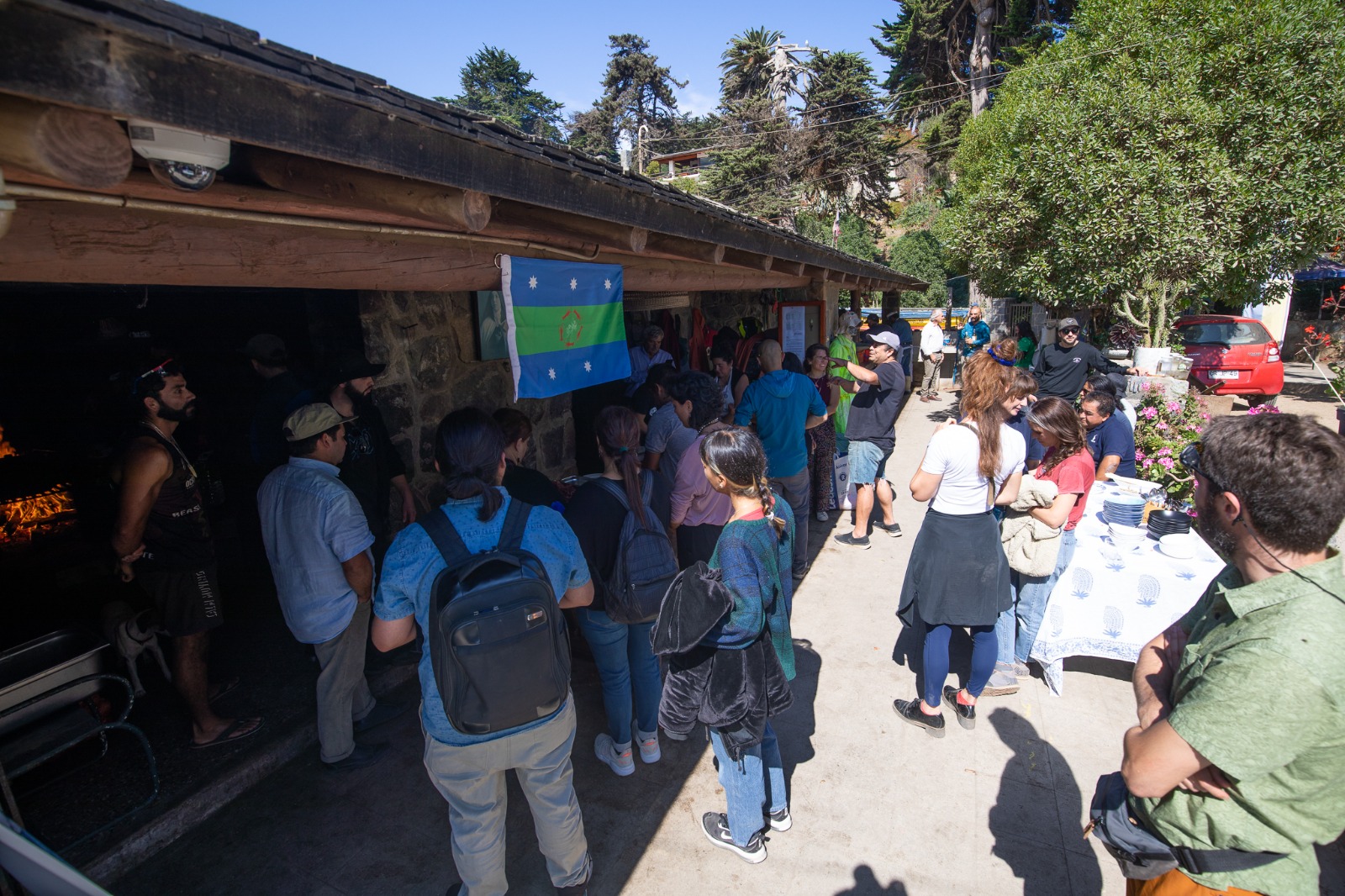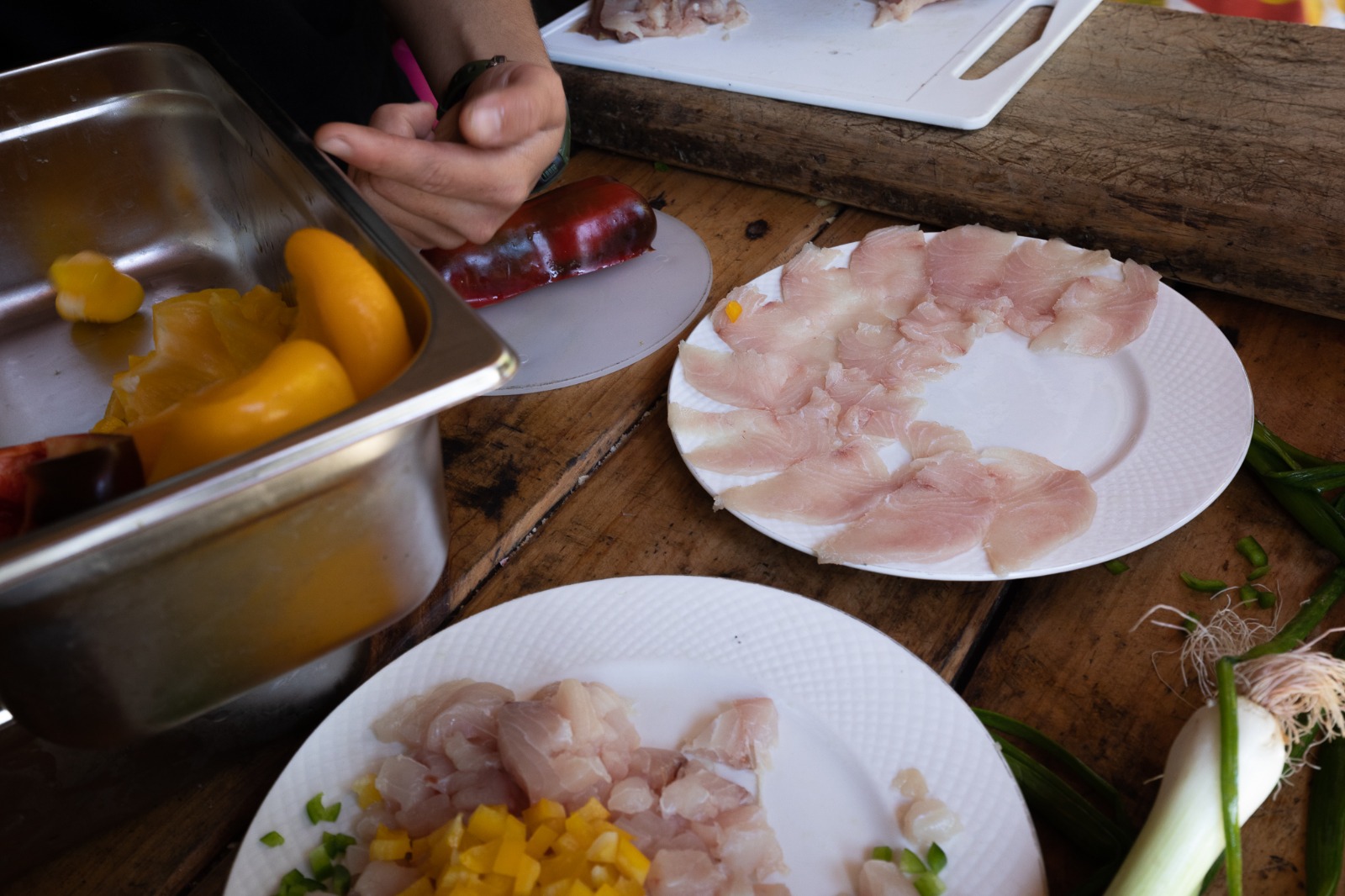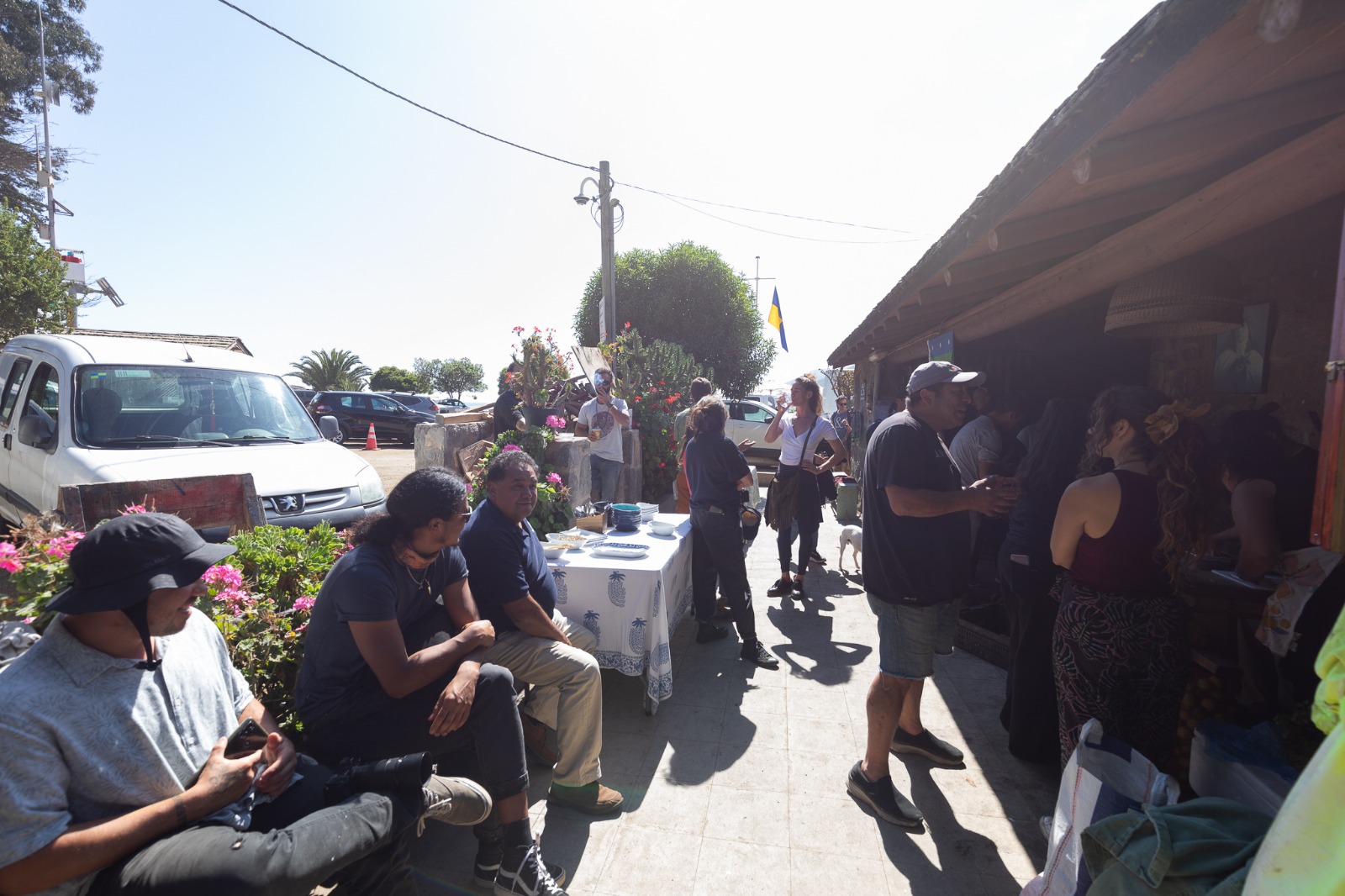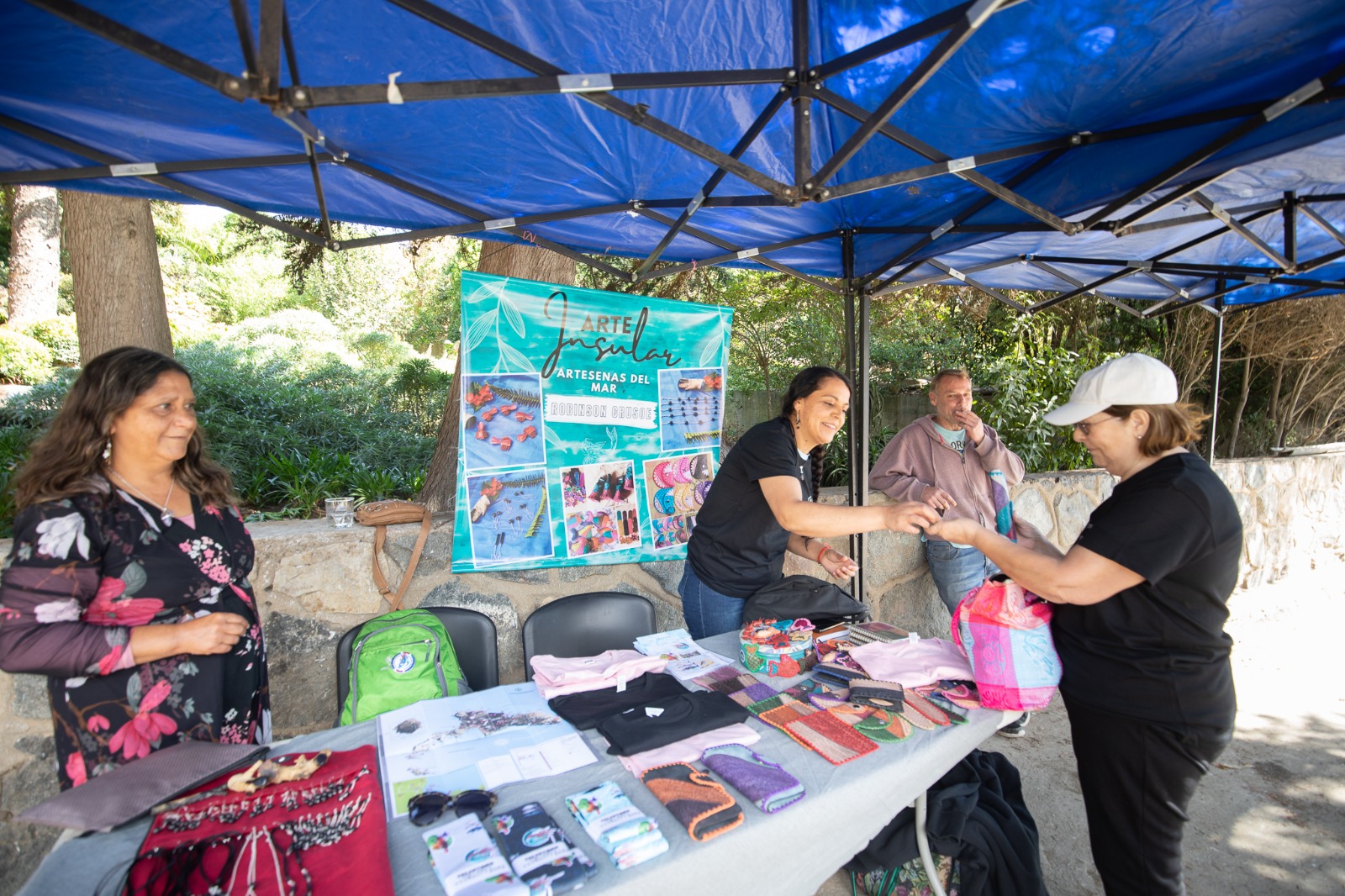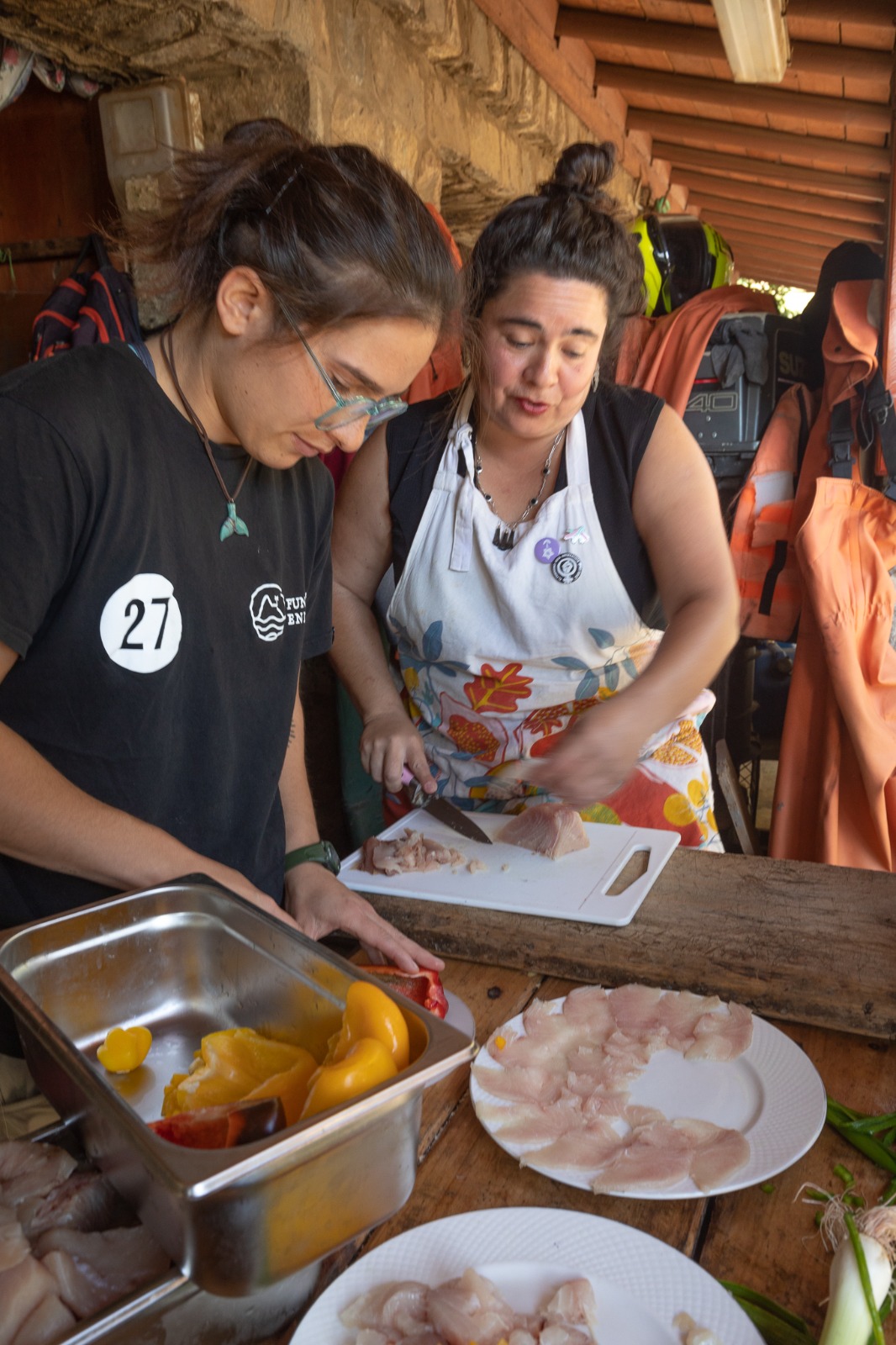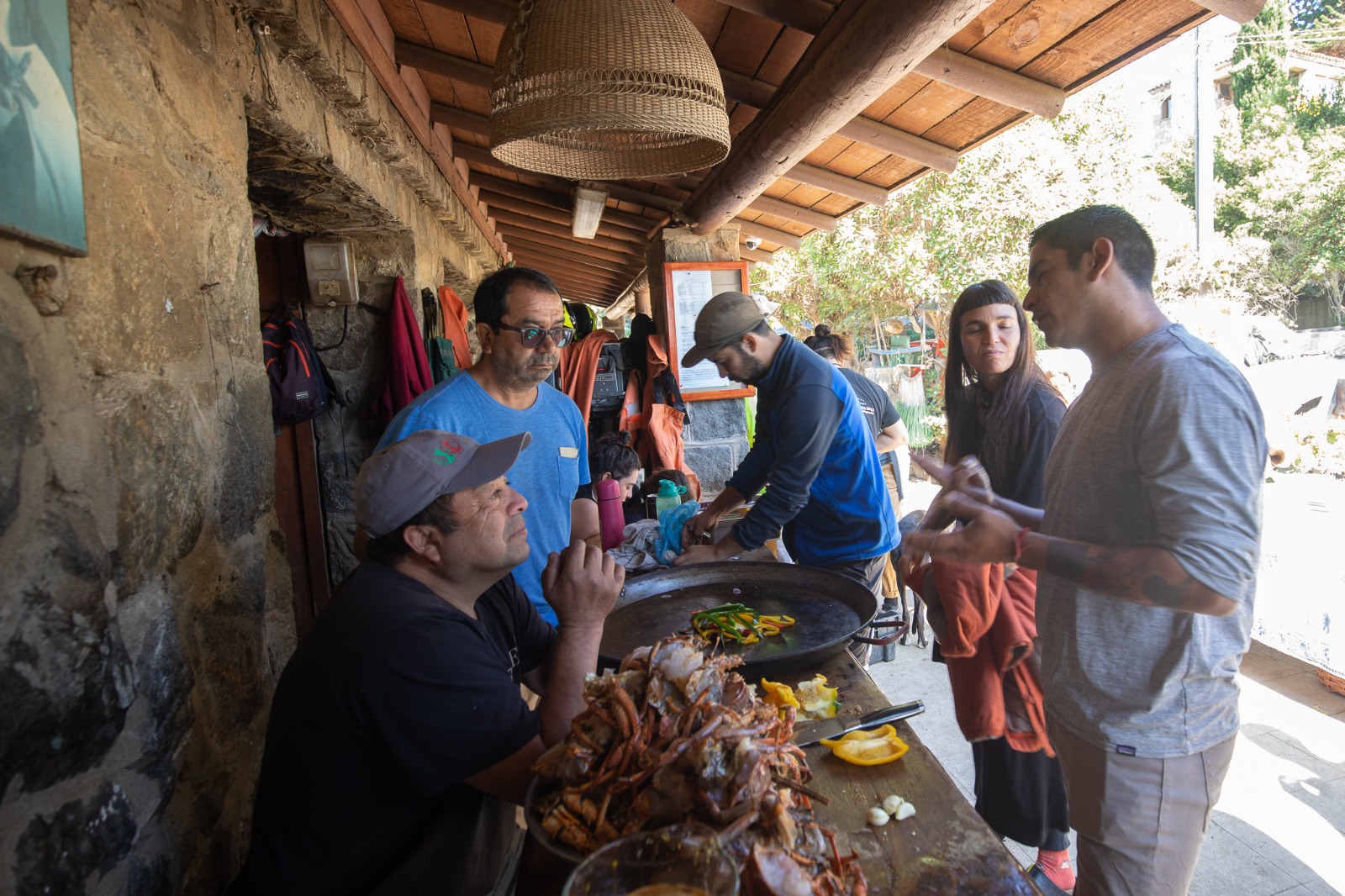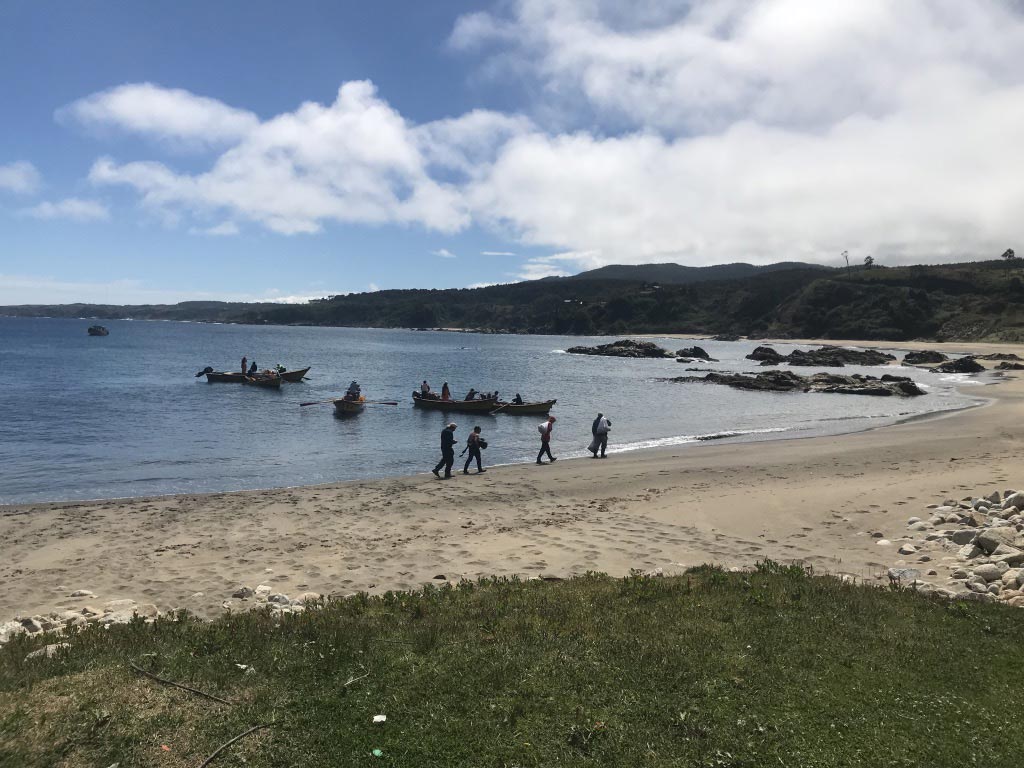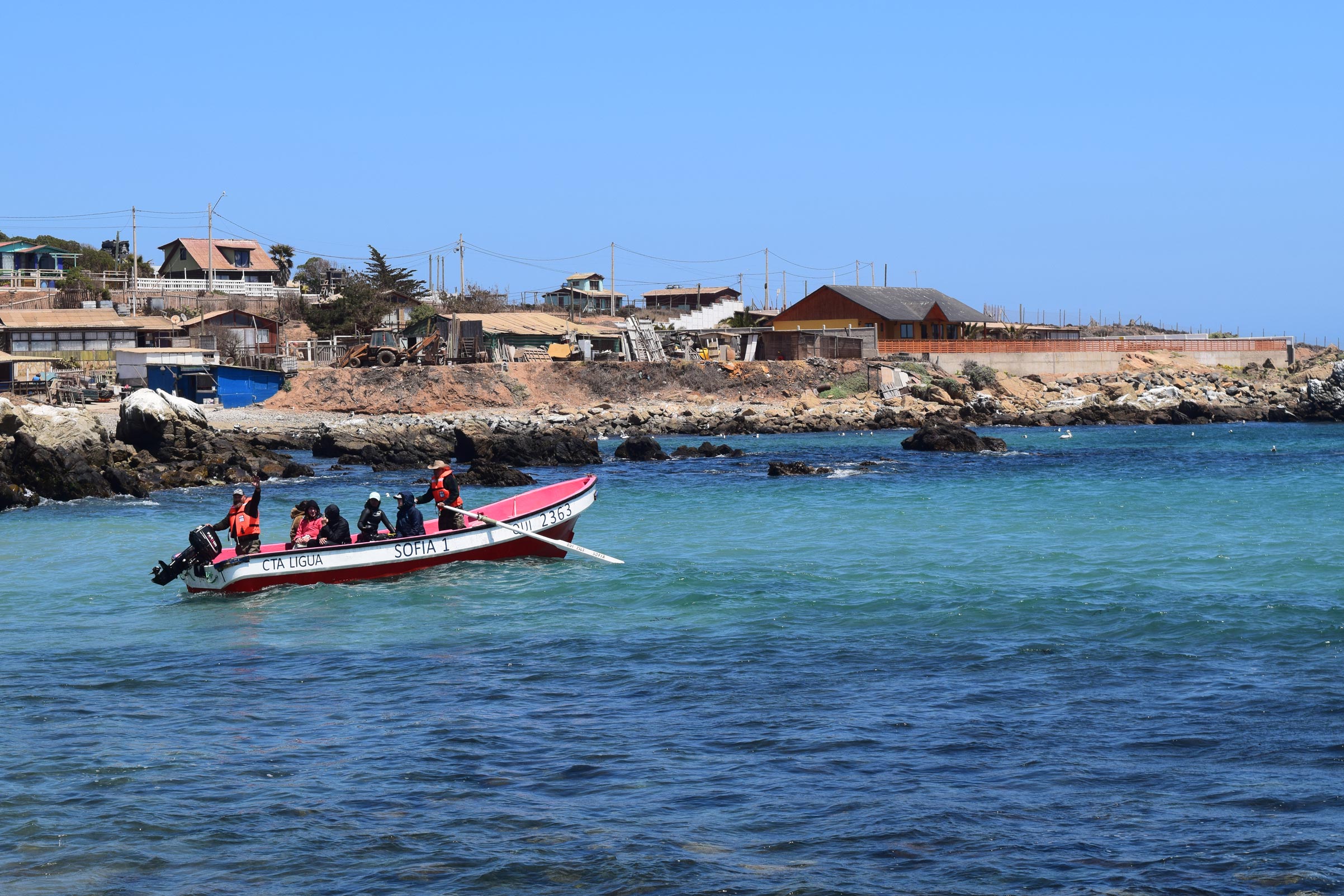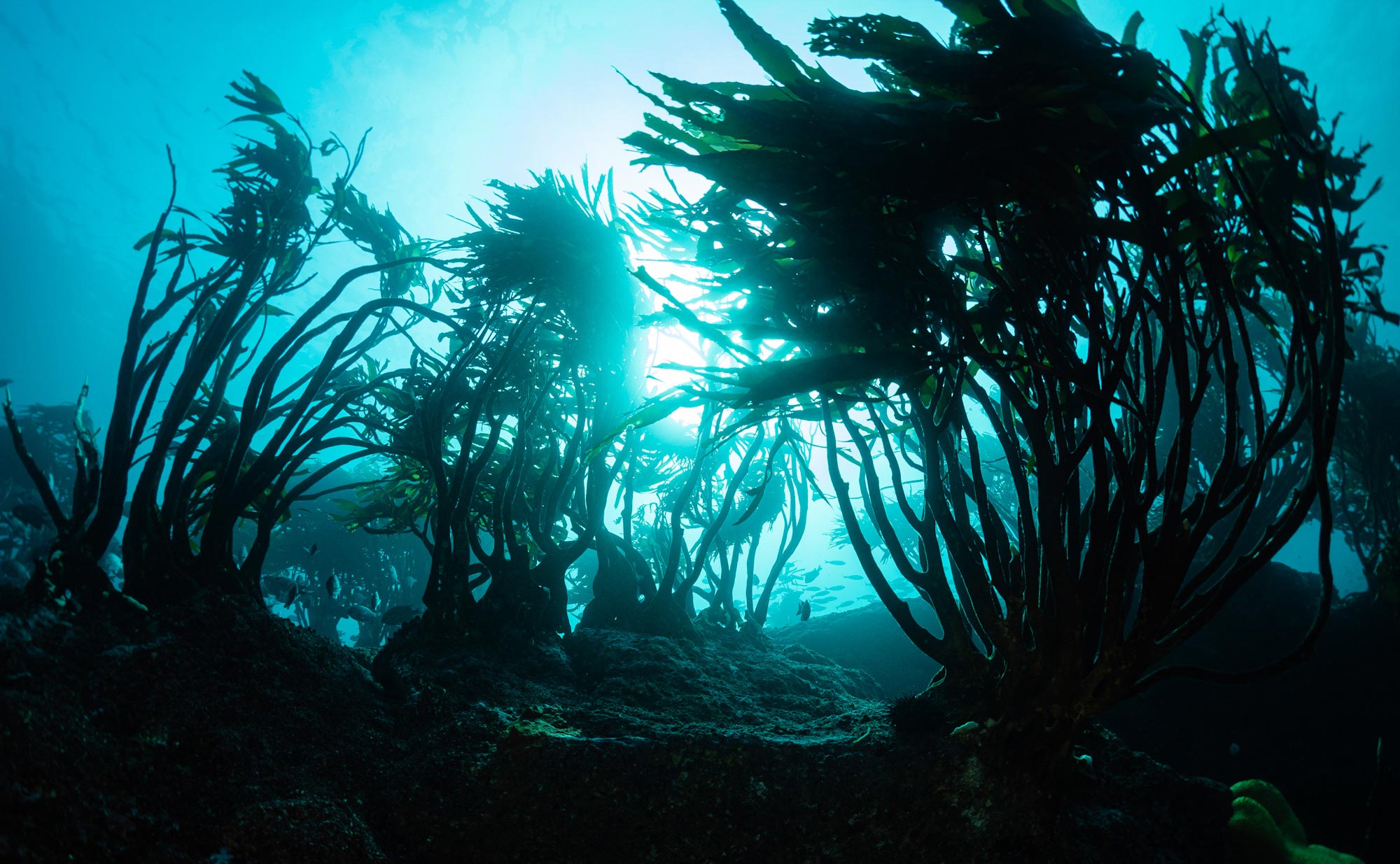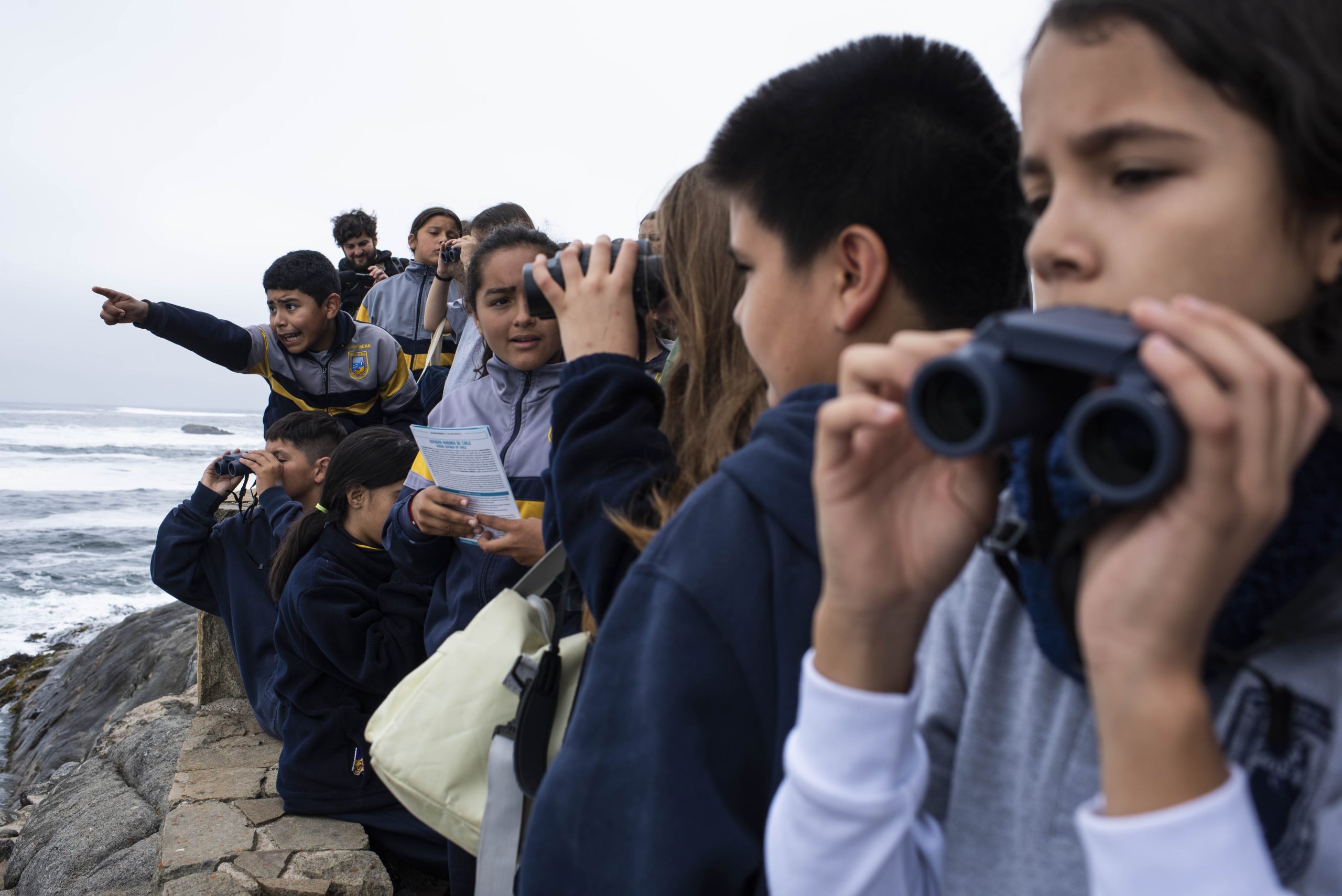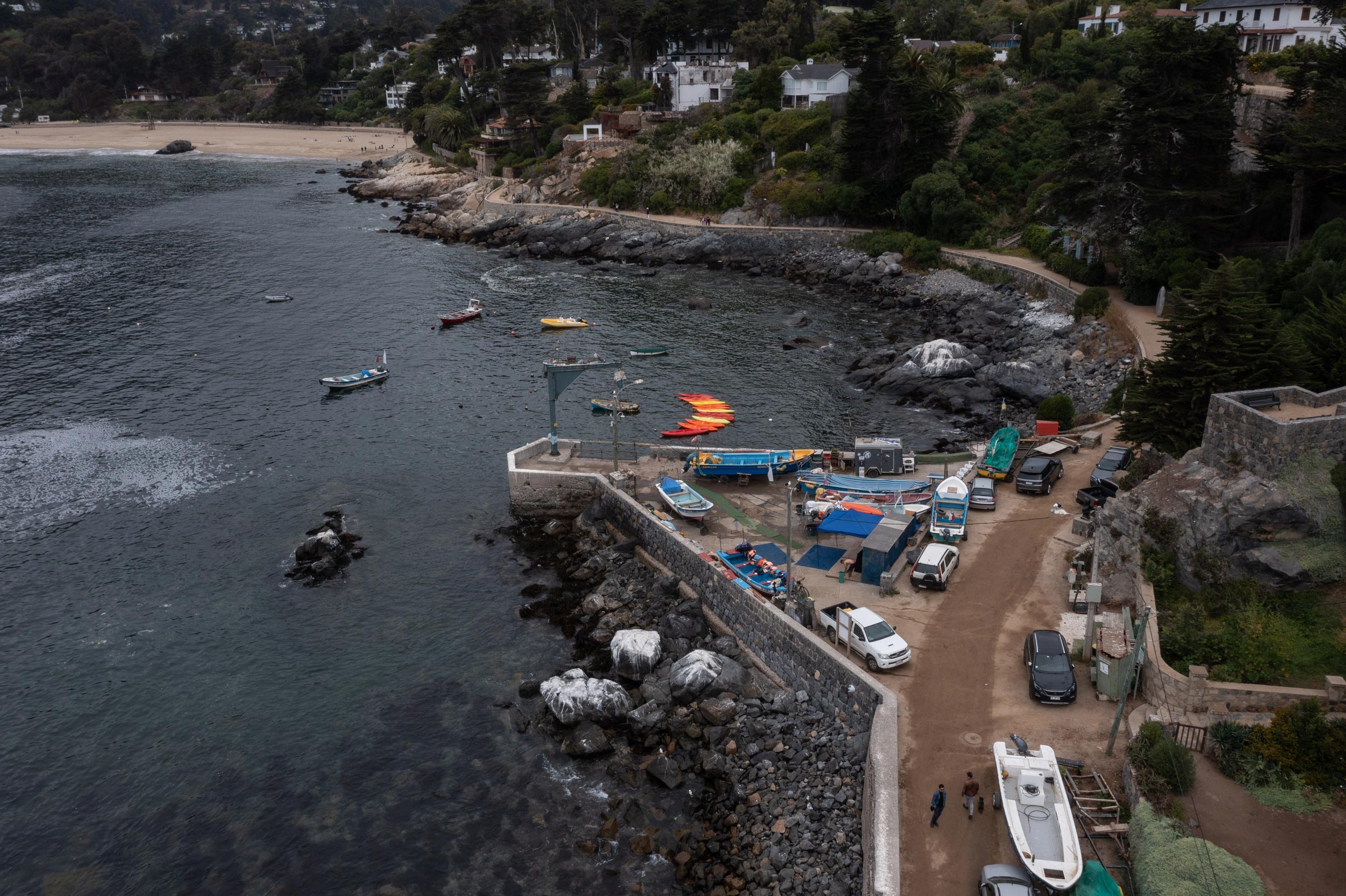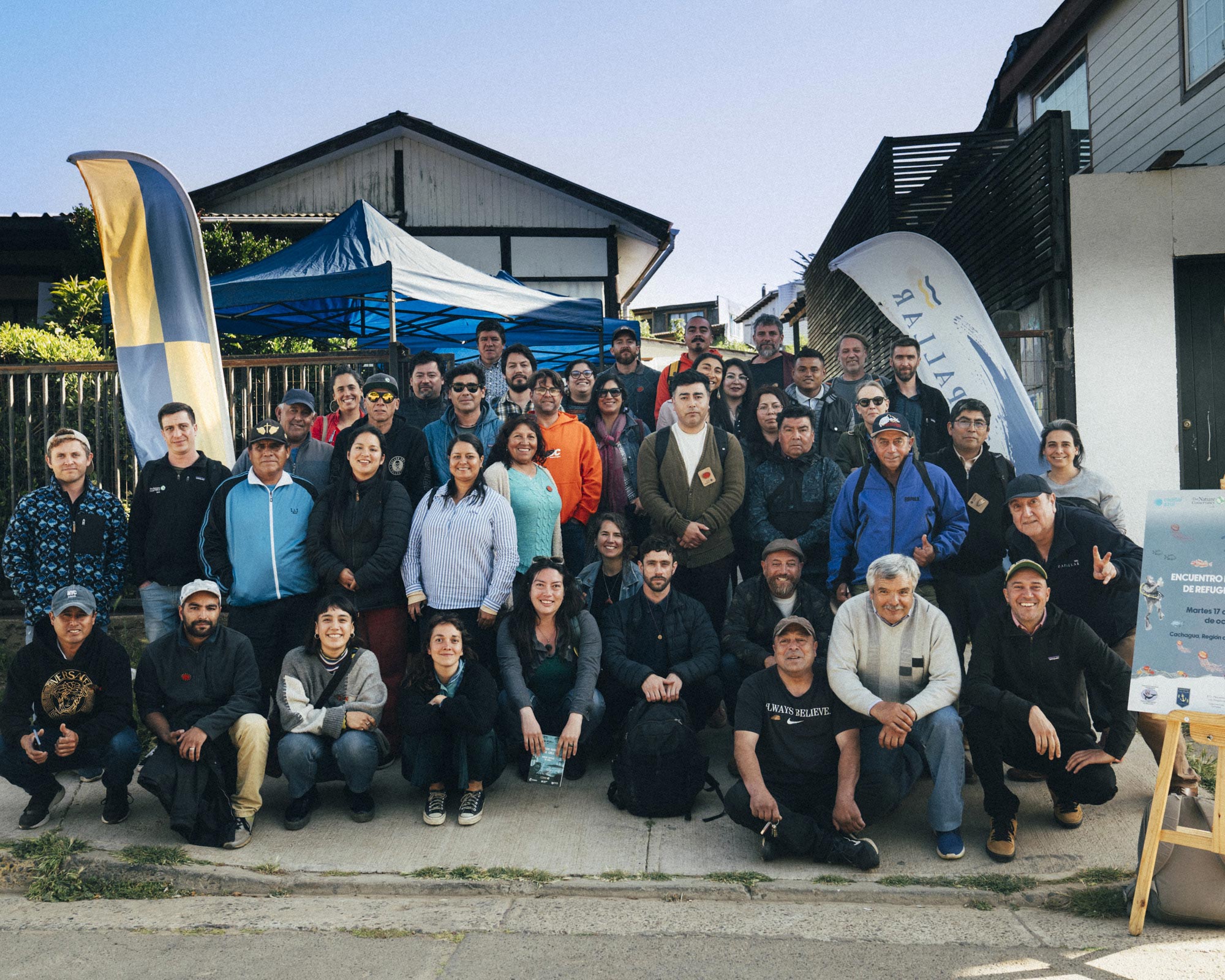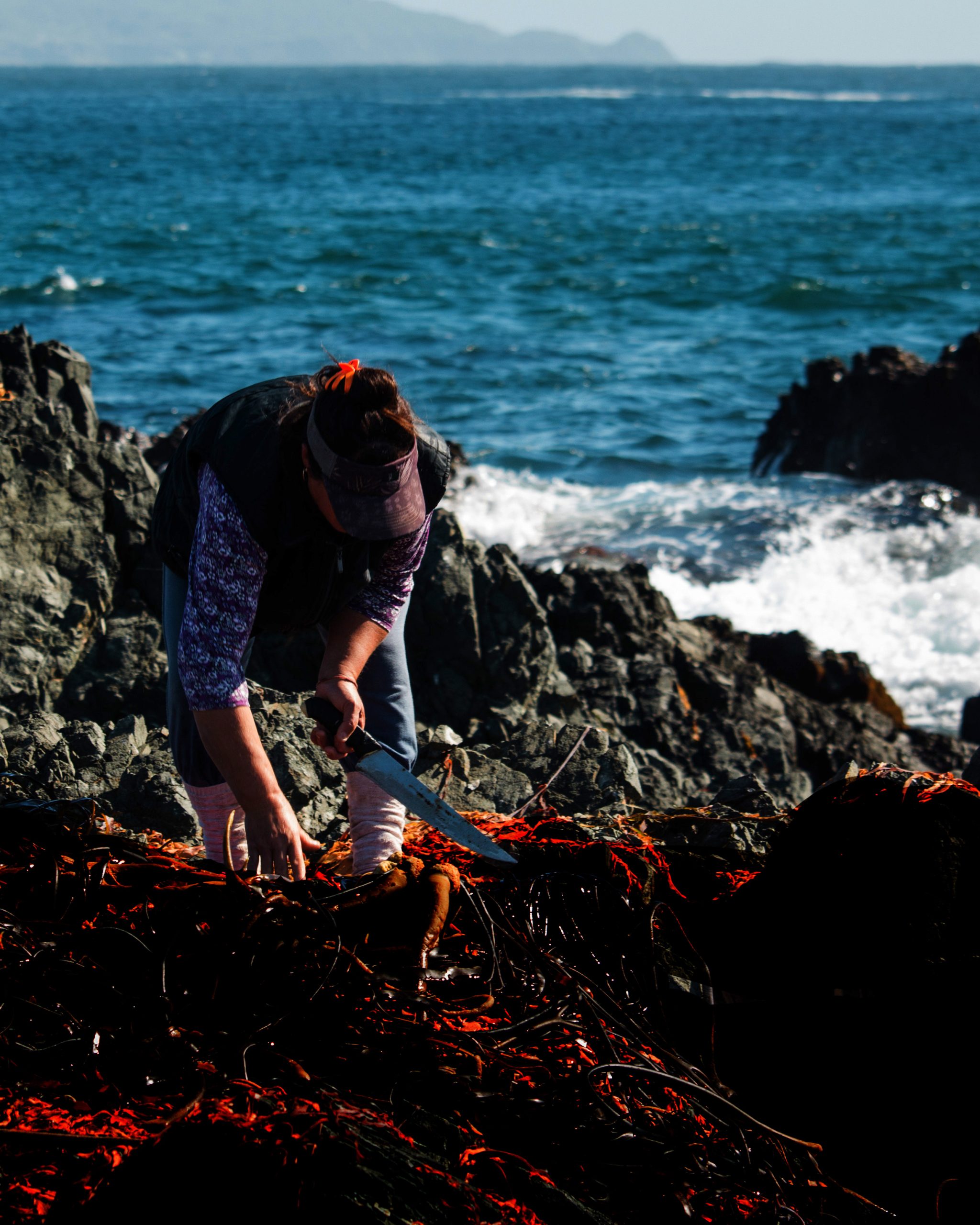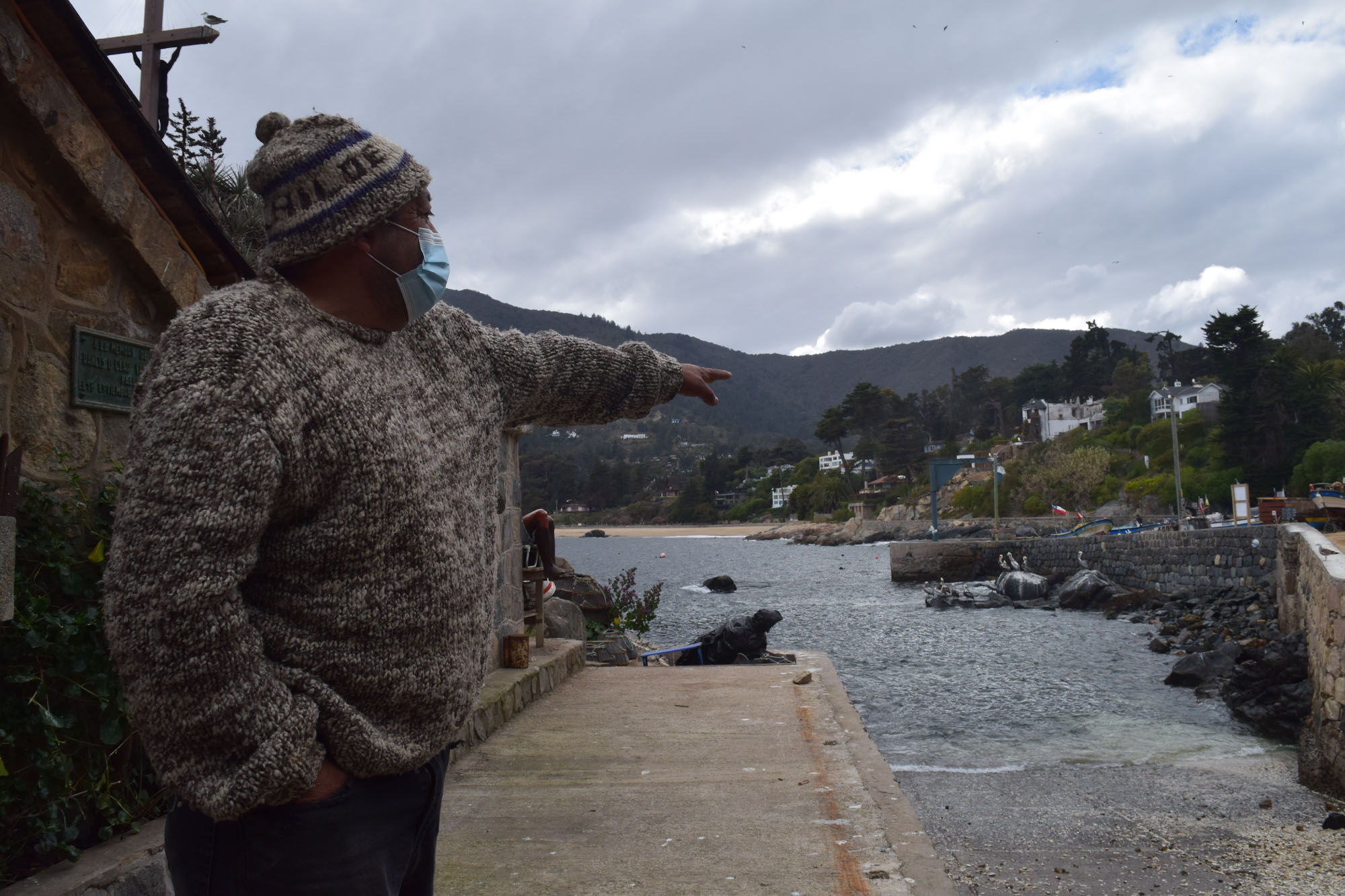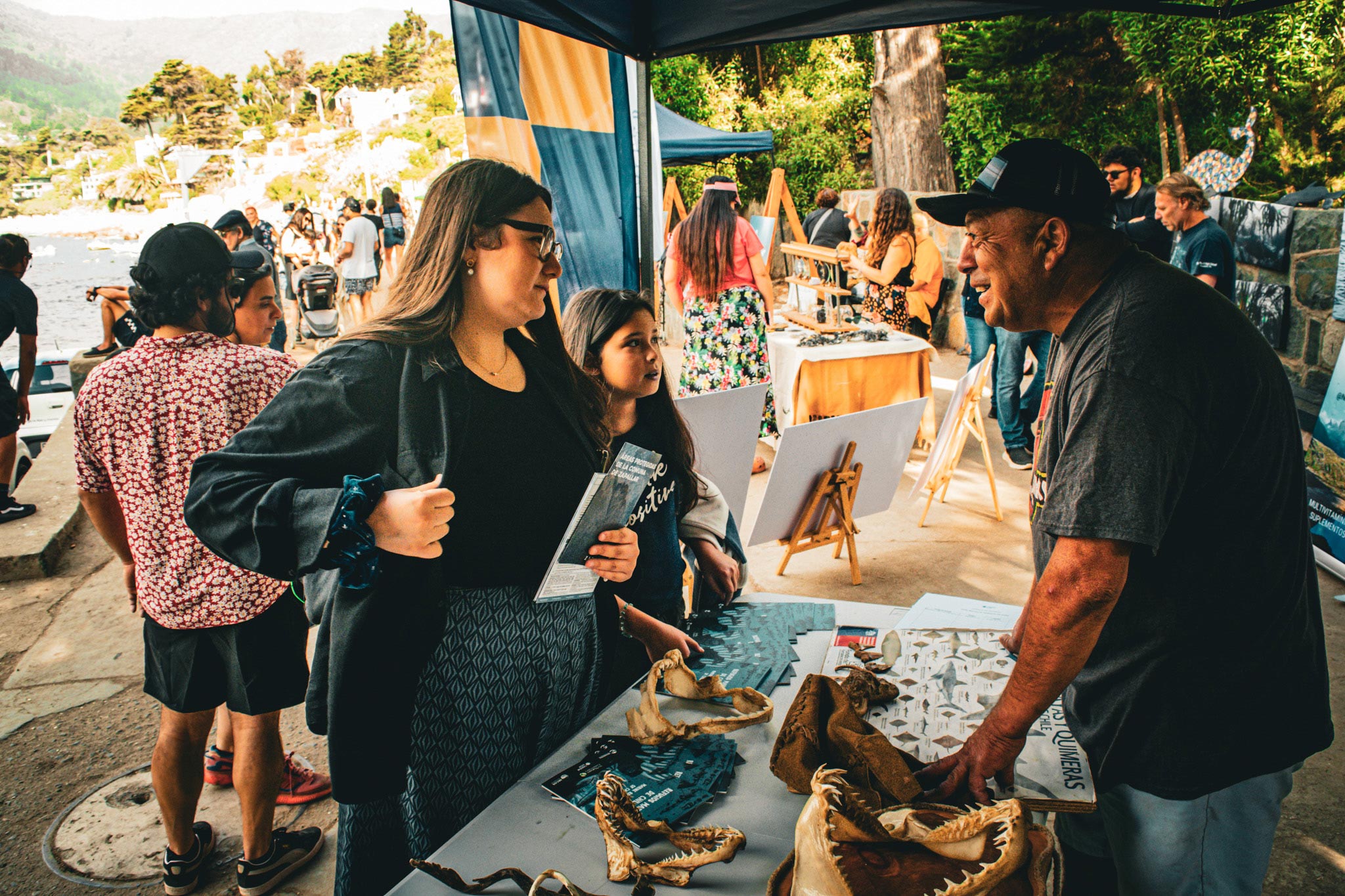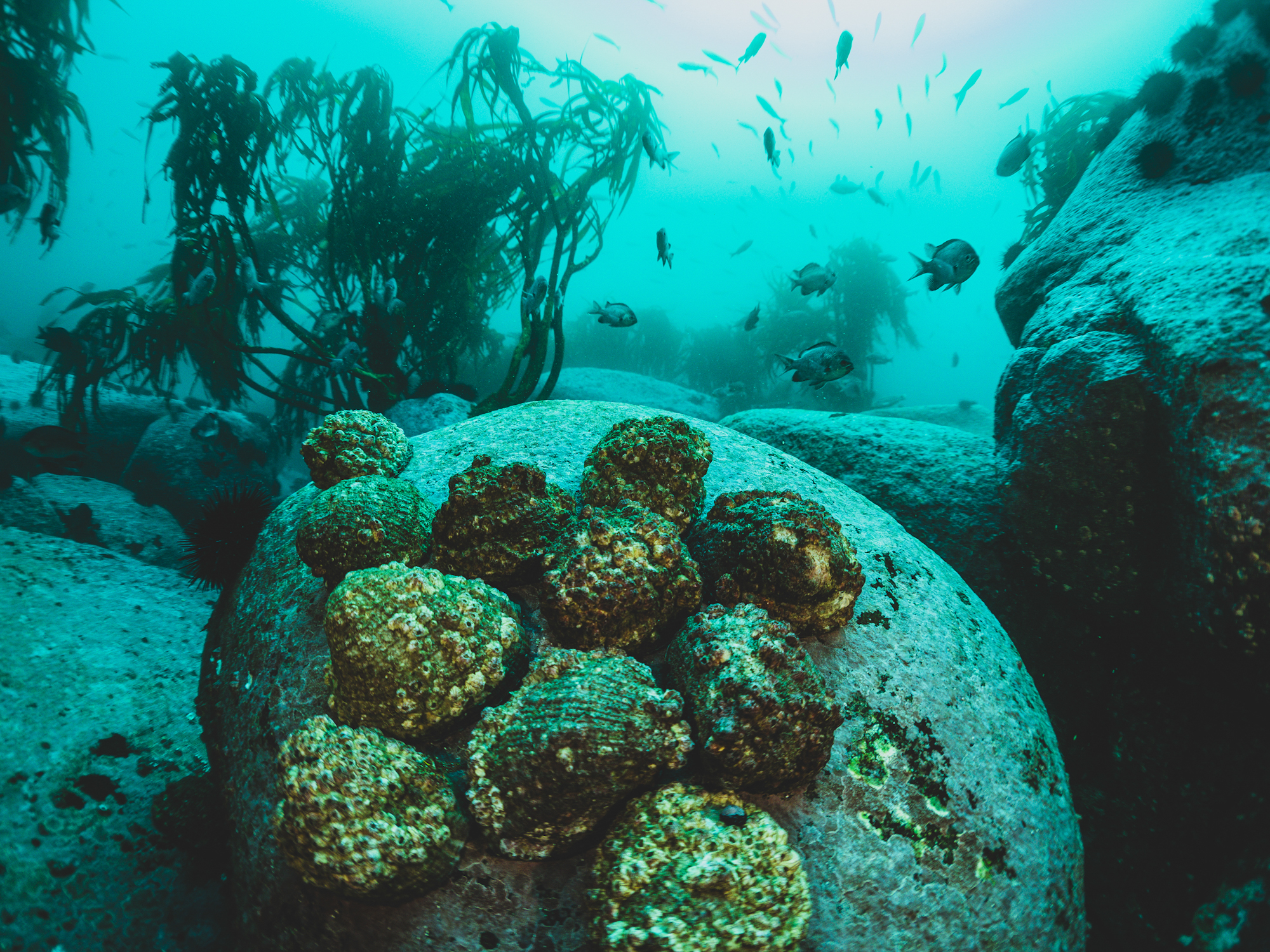Over the years, the bonfire of Caleta de Zapallar has become a meeting point that day after day summons local fishers to the heat of the coals and a crackling fire. With a marked identity, these walls have been silent witnesses of countless stories and conversations that have had the sea as the central axis.
It was this same scenario that a few days ago hosted a meeting around the sustainability of marine-coastal ecosystems. Key to this was the prominence that Zapallar has gained thanks to the members of the Fishers’ Union, who voluntarily established a TURF-Reserve in alliance with Capital Azul Foundation within the Territorial User Rights for Fisheries (TURF or AMERB, as abbreviated in Spanish) that they manage in this traditional seaside town in the Valparaíso region.
The meeting, organized by Endémica Foundation and supported by Capital Azul and the municipality of Zapallar, counted with the active participation of islanders from the Juan Fernández Archipelago, who were in charge of preparing a series of typical meals and dishes, from the classic lobster perol, to ceviches and even Juan Fernández octopus. The activity was also attended by part of the local community and fishers from other coves that have established TURF-Reserves in the central zone of continental Chile.
And so, to the relaxed rhythm of island preparations and the warmth of the Zapallar bonfire, conversations spontaneously emerged to generate rich opportunities for sharing and exchanging life experiences with a strong focus on the sustainability of the ocean and the challenges faced not only by marine-coastal ecosystems, but also by the communities. In particular, the fishers of Juan Fernández emphasized the importance of the fact that the former island fishers self-imposed management measures to avoid the overexploitation of resources, especially of their star product: lobster. It is thanks to this that today they can continue to make a living from the sea.
“Although the main theme of the meeting was marine protected areas, the audience was not only made up of fishers. Our delegation was made up of representatives from different productive sectors of our community, and we met with members of different productive sectors of Zapallar. Communities that feel a high degree of belonging to their territories will do everything possible to protect them, and this is something we can find in different coastal towns in Chile”, commented Felipe Paredes, co-founder of Endémica Foundation.
“In Zapallar and Juan Fernández we found examples where public and private institutions, together with civil society, are dedicated to making sustainability the main pillar of development, with a strong emphasis on the protection and conservation of ecosystems”, added Paredes.
Sergio Veas, president of the Zapallar Artisanal Fishers Union , said that the meeting “it was a nice opportunity to learn about other experiences and understand that there are many lessons and learnings that can be obtained from other communities that are ahead in these issues related to the care of the sea”.
In the future, it is hoped that this activity can be repeated, but this time in Robinson Crusoe. “This meeting was a first approach. We would like to be able to arrange a visit by people of Zapallar to Juan Fernández, and in this way deepen the processes of creation and administration of marine protected areas, and also in forest restoration”, said Felipe Paredes with a vision of continuing to promote local governance processes around marine-coastal ecosystems.


It was a nice opportunity to learn about other experiences and understand that there are many lessons and learnings that can be obtained from other communities that are ahead in these issues related to the care of the sea.
Sergio Veas
President of the Zapallar Cove Fishers’ Union

